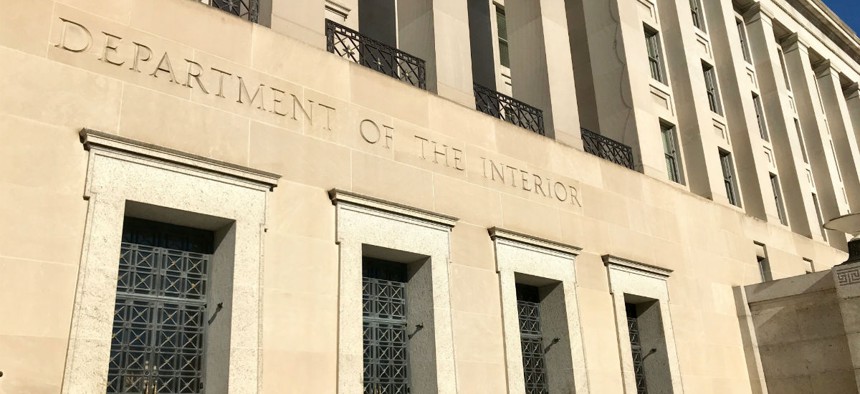
By Jer123 / Shutterstock.com
Interior Dept. Plan to Streamline FOIA Responses Alarms Transparency Groups
Efficiency proposal from unconfirmed deputy secretary may be illegal, groups say.
An Interior Department proposed rule published late last month to ease the workload of its Freedom of Information Office staff has drawn fire from at least three transparency advocacy groups.
The nonprofits American Oversight and Democracy Forward, as well as Public Employees for Environmental Responsibility filed comments before the (extended) Jan. 29 deadline arguing that the proposed changes violate FOIA and that the Interior official who wrote them lacks authority.
“Exponential increases in requests and litigation have made updates to these regulations a priority,” the rule stated. Outsider requests for internal documents under FOIA, it said, rose from 6,428 in fiscal 2016 to more than 8,350 in fiscal 2018, coinciding roughly with the arrival of the Trump administration. “Some bureaus and offices have been hit especially hard,” said the proposal signed by Daniel Jorjani, whose job title was listed as “principal deputy solicitor, exercising the authority of the solicitor.”
Under the proposal, Interior could decline to “honor a request that requires an unreasonably burdensome search or requires the bureau to locate, review, redact or arrange for inspection a vast quantity of material.” It would allow Interior to deny requests that do not spell out an “identifiable agency activity, operation, or program.” And the department’s FOIA office could also refer some document requests to other agencies, or limit the requesters’ monthly submissions.
An Interior spokeswoman told Government Executive on Wednesday: “The department’s statutory obligations under the Freedom of Information Act will not change. In fact, many of the proposed changes reflect developments in the law, court decisions and policy guidance from the Justice Department. In the face of an unprecedented volume of FOIA requests and resulting litigation, we remain committed to transparency.”
The goals, she added, include making operations more efficient while also ensuring “more equitable and regular access to federal records for all requesters, not just litigious special-interest groups. Our goal is to operate the government in the most lawful, ethical and efficient manner to best serve the American taxpayer.”
American Oversight, in comments joined by Democracy Forward and announced on Tuesday, argued that the proposed changes “violate FOIA and unlawfully fail to consider alternative approaches that would more effectively advance the transparency interests underlying the statute.”
“It is absurd that the Trump administration is attempting to justify this blatant attack on transparency by citing its own failure to process public records requests,” said Austin Evers, executive director of American Oversight. “The Freedom of Information Act played a key role in enabling watchdogs and journalists to uncover former Secretary [Ryan] Zinke’s wide-ranging corruption. Interior’s proposed rule will hurt Americans’ ability to hold government officials accountable.”
PEER Executive Director Jeff Ruch earlier this month released a statement calling the proposed rule vague and predicting it will lead to more litigation. “These changes are designed to facilitate more official stonewalling and delays in producing public records, especially on fast-developing news stories," he said. "Interior current political appointees prefer to operate in secrecy and regard the Freedom of Information Act as a nuisance, not a responsibility.”
In challenging the move by Jorjani, an American Oversight attorney wrote that “less than a week before he resigned, Zinke took the unusual step of giving a political appointee, former Koch brothers adviser Daniel Jorjani, the authority to oversee FOIA responses. Jorjani had previously, when discussing an [inspector general] investigation related to Zinke, told [Interior] staff that ‘our job is protect the secretary.’ ” The department’s new proposed regulations, the attorney added, "are issued under Jorjani’s supposed authority, and it is far from clear whether he has the authority.”







